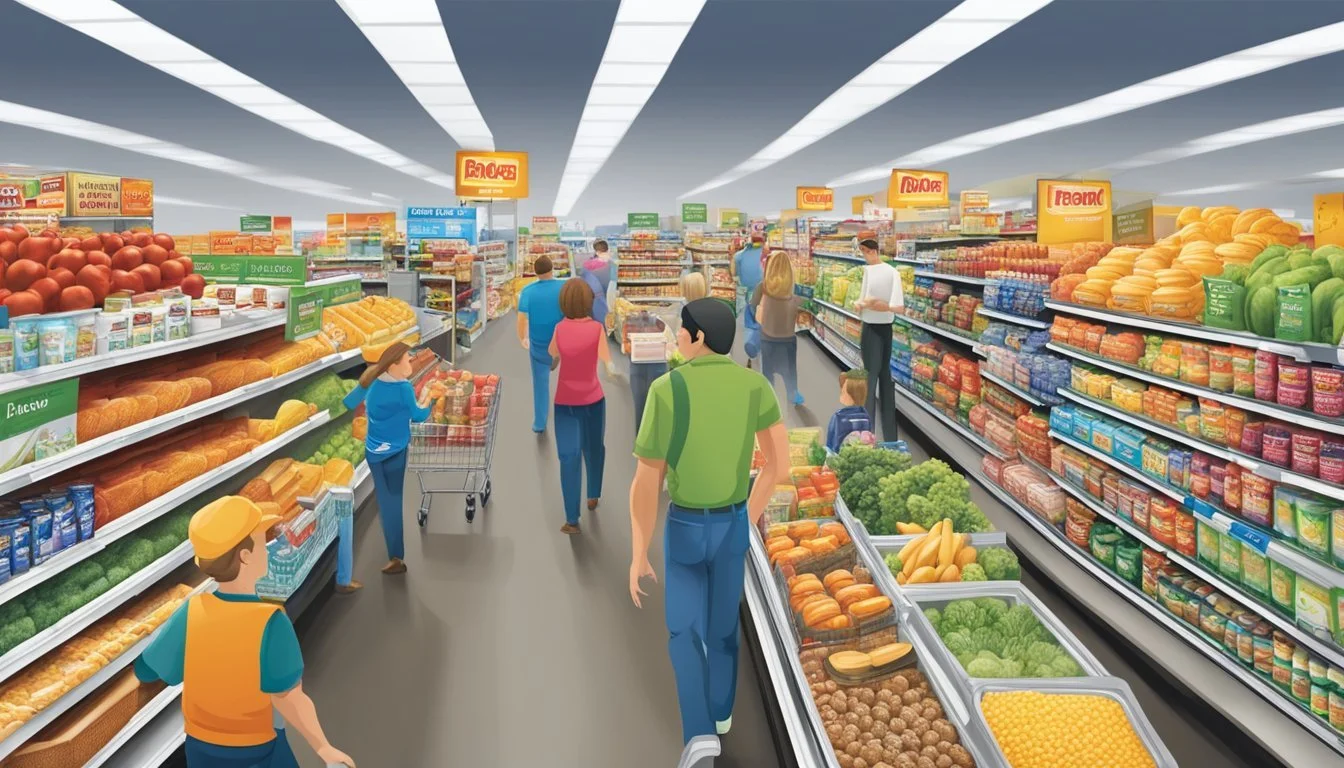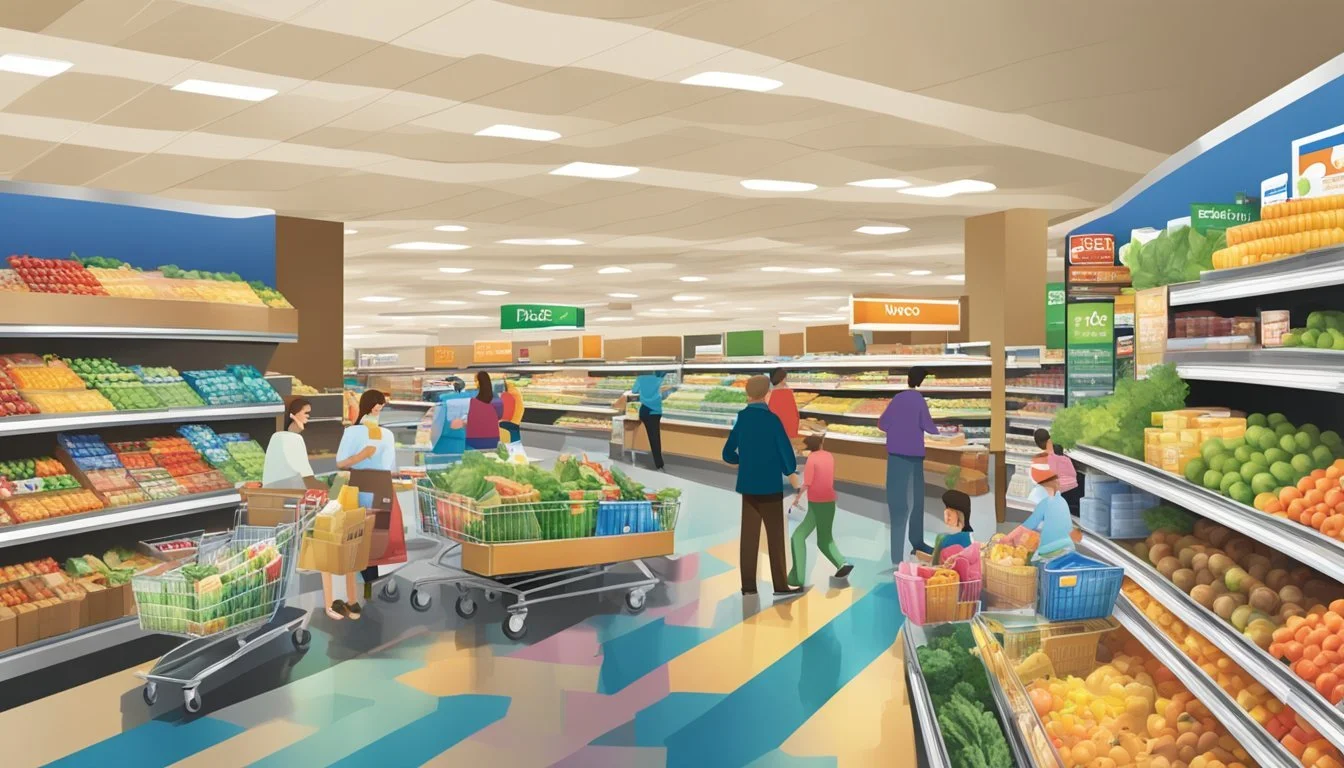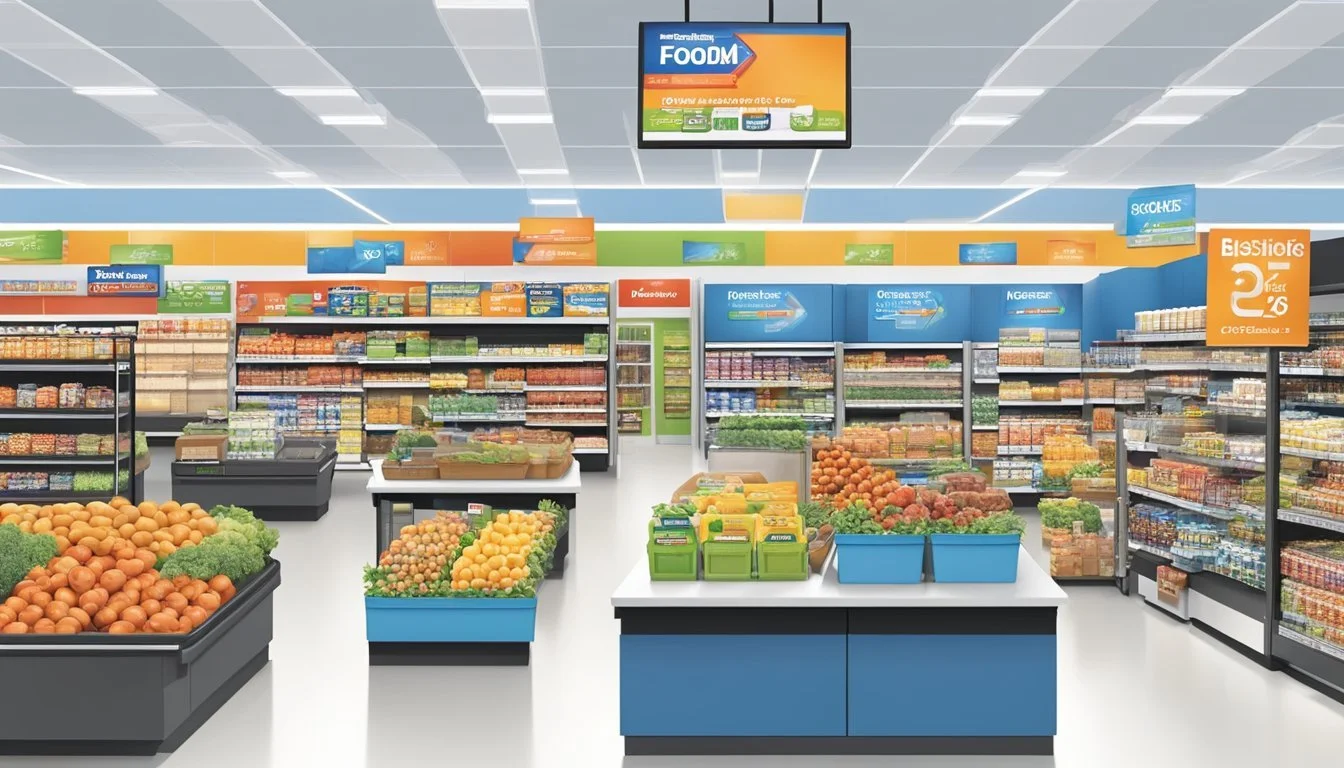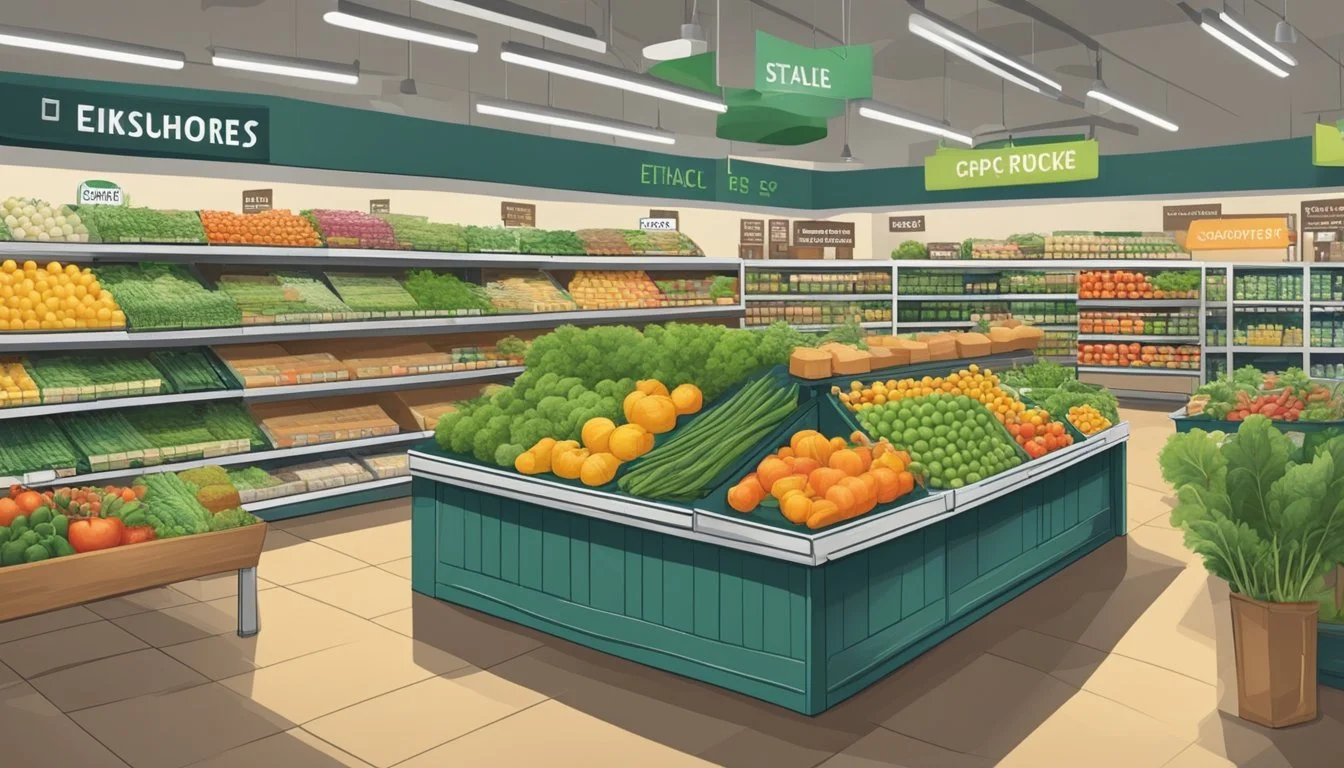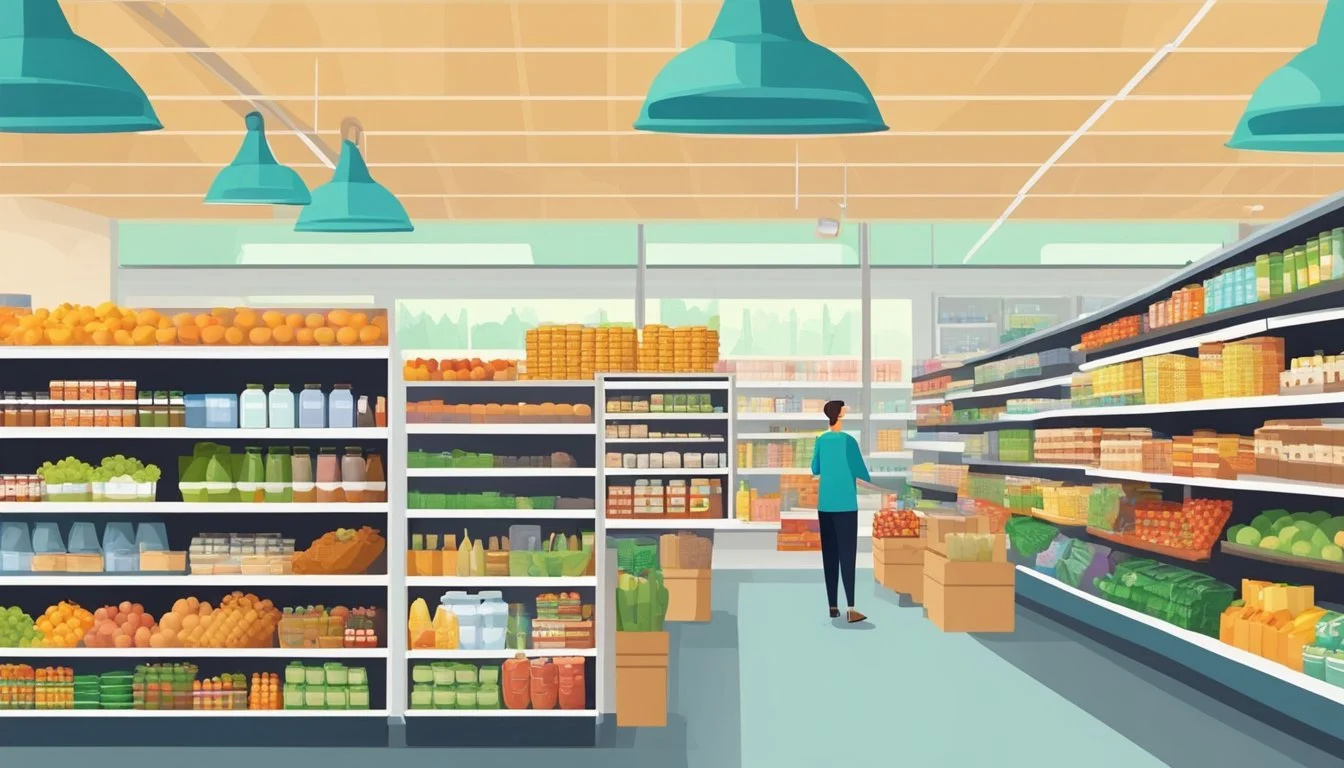FoodMaxx vs Meijer
A Comprehensive Comparison of Prices, Selection, and Quality
When it comes to grocery shopping, finding the best balance of price and quality is crucial for many consumers. FoodMaxx and Meijer are two popular grocery chains that cater to budget-conscious shoppers. Both stores offer competitive prices on a wide range of products, but they differ in their approach to customer service and store experience.
FoodMaxx tends to have slightly lower prices overall, with costs averaging 21% below the typical grocery store. This makes it an attractive option for those looking to stretch their food budget. Meijer, while still competitively priced, focuses more on providing a one-stop shopping experience with a broader selection of non-grocery items.
The choice between FoodMaxx and Meijer often comes down to individual preferences. FoodMaxx appeals to shoppers primarily concerned with getting the lowest prices on groceries. Meijer attracts customers who value the convenience of purchasing groceries alongside other household items in a larger store format.
Company Profiles
FoodMaxx and Meijer are two distinct grocery chains with unique histories and market positions. Both have grown to serve customers across multiple states, offering competitive prices and diverse product selections.
History and Background of FoodMaxx
FoodMaxx began as a discount grocery store division of Save Mart Supermarkets in 1986. The chain was created to compete with warehouse-style stores by offering lower prices without requiring membership fees.
FoodMaxx operates primarily in California and Nevada. It has built a reputation for providing affordable groceries and fresh produce to budget-conscious shoppers.
The store's no-frills approach includes having customers bag their own groceries and using minimal decor. This strategy allows FoodMaxx to keep prices low while maintaining product quality.
FoodMaxx stores typically range from 45,000 to 60,000 square feet, offering a wide selection of groceries, including many Hispanic food items to cater to local demographics.
History and Background of Meijer
Meijer was founded in 1934 by Hendrik Meijer in Greenville, Michigan. It began as a small grocery store during the Great Depression and has since grown into a major Midwest supermarket chain.
In 1962, Meijer pioneered the supercenter concept by opening the first "Thrifty Acres" store, which combined groceries with general merchandise under one roof.
Meijer has expanded across six Midwestern states: Michigan, Ohio, Indiana, Illinois, Kentucky, and Wisconsin. The company remains family-owned and operates over 240 stores.
Known for its 24-hour operations and commitment to customer service, Meijer offers a broad range of products beyond groceries, including clothing, electronics, and home goods.
Meijer has embraced technology, introducing self-checkout lanes, online shopping, and home delivery services to enhance the customer experience.
Store Locations and Expansion
FoodMaxx and Meijer have different geographical footprints and expansion strategies. FoodMaxx operates primarily in California, while Meijer has a strong presence in the Midwest.
FoodMaxx Store Locations
FoodMaxx, a discount grocery chain, focuses its operations in California. The company has over 50 stores spread across the state. Most FoodMaxx locations are concentrated in central and northern California.
FoodMaxx stores can be found in cities like San Jose, Fresno, and Sacramento. The chain targets budget-conscious shoppers and often establishes stores in diverse, working-class neighborhoods.
Meijer Store Locations
Meijer, a supercenter chain, has a significant presence in the Midwest. The company operates over 240 superstore formats, combining grocery and general merchandise.
Meijer's core markets include:
Michigan (headquarters state)
Ohio
Indiana
Illinois
Kentucky
Wisconsin
Meijer continues to expand, recently opening new locations in Ohio and Michigan. This growth brings its total store count to over 500.
The company's supercenter format typically ranges from 150,000 to 250,000 square feet. These large stores offer a wide selection of groceries, household items, and other merchandise.
Product Range and Quality
FoodMaxx and Meijer offer distinct product ranges and quality standards to cater to different customer needs. Both stores strive to provide a variety of options while maintaining freshness and quality.
Assortment of Goods
FoodMaxx focuses on offering a wide selection of everyday essentials at competitive prices. Their product range includes fresh produce, meats, dairy, frozen foods, and dry goods. The store emphasizes bulk purchases and no-frills packaging to keep costs down.
Meijer, on the other hand, provides a more extensive selection across various departments. Their supercenter format allows for a broader range of products, including groceries, household items, clothing, and electronics. Meijer's grocery section features a diverse array of brands and specialty items.
Focus on Quality and Freshness
FoodMaxx prioritizes affordability while maintaining acceptable quality standards. Their produce section offers a mix of conventional and some organic options. The meat department provides both fresh and frozen selections to accommodate different budgets.
Meijer places a stronger emphasis on quality and freshness across all departments. Their produce section showcases a wider variety of organic and locally sourced fruits and vegetables. The meat department features higher-grade cuts and a selection of specialty meats.
Meijer's commitment to quality extends to their dairy and bakery sections, offering a range of premium and artisanal products. The store also maintains a dedicated organic foods section, catering to health-conscious consumers.
Pricing and Value for Money
FoodMaxx and Meijer employ different strategies to offer value to customers. Their pricing structures and discount programs impact overall affordability for shoppers.
Price Comparison
FoodMaxx positions itself as a discount grocery chain, focusing on everyday low prices. The store carries a mix of national brands and private label products to keep costs down. In contrast, Meijer operates as a supercenter, offering a wider range of products beyond groceries.
A comparison of common grocery items reveals FoodMaxx often has lower prices on staples like milk, bread, and produce. Meijer's larger size allows for more variety, but this can come at a higher cost. For budget-conscious shoppers, FoodMaxx typically provides better value on essential items.
Discounts and Saving Opportunities
Both stores offer ways for customers to save money beyond shelf prices. FoodMaxx runs weekly specials and provides digital coupons through its app. The store also offers bulk discounts on certain items.
Meijer's mPerks program allows customers to earn rewards and access digital coupons. The program includes personalized offers based on shopping habits. Meijer also price matches competitors' ads, giving savvy shoppers a chance to get the best deals.
FoodMaxx's simpler approach focuses on consistent low prices, while Meijer's program requires more active participation to maximize savings.
Consumer Services Offered
FoodMaxx and Meijer offer various services to enhance the shopping experience. Both stores prioritize customer satisfaction through in-store assistance and convenient delivery options.
Customer Service Experience
FoodMaxx focuses on providing a no-frills shopping environment with minimal staff interaction. Customers can expect a self-service approach, with limited assistance available upon request. The store layout is designed for efficiency, allowing shoppers to quickly find items.
Meijer takes a more hands-on approach to customer service. Employees are readily available throughout the store to answer questions and provide assistance. The retailer offers a wider range of departments, including pharmacy and electronics, with specialized staff to help customers.
Both stores provide self-checkout options for faster transactions. Meijer also offers mPerks, a digital coupon and rewards program, giving customers additional savings opportunities.
Grocery Delivery and Pickup Options
FoodMaxx has limited delivery options, primarily relying on third-party services like Instacart in select locations. The store does not offer its own dedicated pickup service.
Meijer provides more comprehensive delivery and pickup choices. Customers can use Meijer Home Delivery for same-day service, with orders fulfilled by Shipt. The retailer also offers Meijer Pickup, allowing customers to order online and collect groceries curbside.
Meijer's delivery service is integrated with their mPerks program, enabling customers to apply digital coupons to online orders. The retailer also provides the option to schedule deliveries in advance, catering to busy households.
Ethical Practices and Sustainability
FoodMaxx and Meijer take different approaches to ethical practices and sustainability in their grocery operations. Their policies on animal welfare and support for local agriculture impact both product offerings and supply chains.
Animal Welfare Standards
FoodMaxx provides limited information about its animal welfare standards. The chain offers some organic meat and dairy options but does not heavily promote specific animal welfare certifications.
Meijer has made public commitments to improving animal welfare in its supply chain. The company pledges to source only cage-free eggs for its Meijer brand by 2025. Meijer also offers organic and antibiotic-free meat options.
Neither retailer has eliminated gestation crates for pork products. Both carry some products certified as humanely raised, but these make up a small portion of total meat sales.
Support for Local Agriculture
FoodMaxx sources some produce from local farms but does not heavily emphasize local agriculture in its marketing. The chain focuses more on low prices than on highlighting local producers.
Meijer actively promotes its partnerships with local farmers and food producers. The company runs a "Home Grown" program featuring over 250 local suppliers across its six-state operating area.
Meijer hosts meet-the-grower events in stores to connect customers with local farmers. The retailer also provides grants and training to help small local producers scale up to meet its supply needs.
Specialty Sections and Unique Offerings
FoodMaxx and Meijer both offer specialty sections and unique products to cater to diverse customer preferences. Their selections differ in key areas like organic foods, private label offerings, and meat departments.
Organic and Natural Food Selection
Meijer provides a substantial organic and natural food section. It features a wide array of fresh produce, pantry staples, and specialty items. The store stocks popular organic brands alongside its own True Goodness organic line.
FoodMaxx offers a more limited organic selection. It focuses on basic organic produce and packaged goods. The store aims to provide affordable organic options rather than an extensive range.
Neither chain matches the variety found at Whole Foods, but Meijer comes closer in terms of organic offerings.
Private Label Products
Meijer's private label products span numerous categories. Its main store brand, Meijer, covers everyday essentials at competitive prices. The premium True Goodness line includes organic and natural products.
FoodMaxx relies heavily on its parent company's private labels. These include First Street for grocery items and Sun Harvest for natural and organic products. The selection is more limited than Meijer's but aims for value.
Both chains use private labels to offer alternatives to national brands at lower price points.
Meat Specialty and Butchery
Meijer boasts a full-service meat department with trained butchers on staff. It offers custom cuts, specialty meats, and aged beef. The selection includes Prime grade steaks and a variety of prepared options like marinated meats and kebabs.
FoodMaxx provides a more basic meat department. It focuses on pre-packaged cuts and family-size packs. The store emphasizes value over specialty options or premium grades.
Meijer's meat quality and variety surpass FoodMaxx, particularly for customers seeking high-end cuts or specific preparation methods.
Comparative Analysis
FoodMaxx and Meijer offer distinct shopping experiences with varying product availability. Both stores have their strengths and weaknesses in terms of customer experience and inventory management.
Overall Shopping Experience
FoodMaxx stores typically have a no-frills atmosphere focused on low prices. The layout is often simple, with products displayed in bulk or on pallets. Aisles may be narrower, and the overall aesthetic is functional rather than upscale.
Meijer, in contrast, provides a more comprehensive shopping experience. Their stores are usually larger, offering a wider range of departments beyond groceries. The layout is more spacious and organized, with clearly marked sections.
FoodMaxx caters to budget-conscious shoppers seeking basic necessities. Meijer appeals to a broader customer base, offering both budget-friendly options and higher-end products.
Product Availability and Stock Issues
FoodMaxx generally maintains a steady stock of essential items and popular brands. Their inventory focuses on everyday groceries and household goods. The selection may be more limited compared to larger supermarkets.
Meijer boasts a more extensive product range, including groceries, clothing, electronics, and home goods. Their larger stores allow for greater variety in each category. Meijer often carries local and specialty products alongside national brands.
Stock issues can occur at both stores, but Meijer's larger size and broader supplier network may lead to better overall availability. FoodMaxx, with its focus on discounted items, might experience more frequent out-of-stock situations for popular products.

